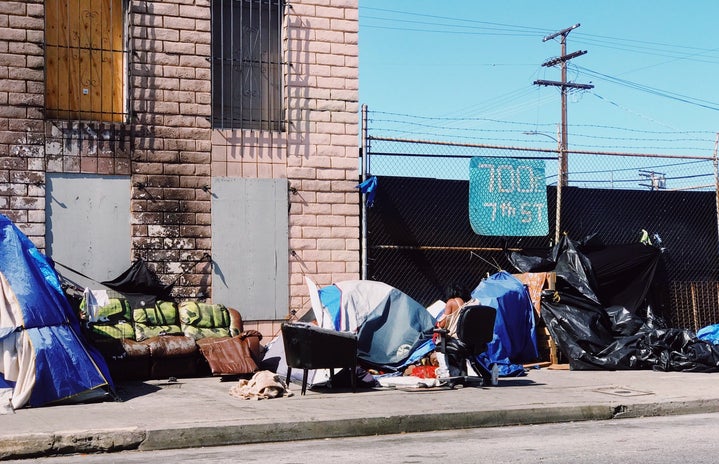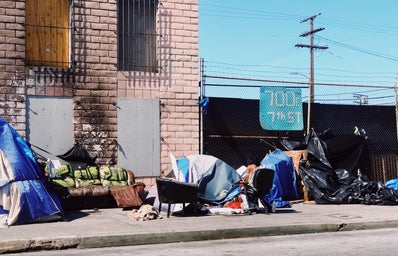I once watched Steve Harvey’s “Rich people don’t sleep 8 hours a day” video. It motivated me so much that I even posted it on my WhatsApp status. Steve Harvey says a lot of things in that video, but “rich people don’t sleep 8 hours a day” is the only sentence I remember. It even plays in my head on the days that I don’t feel like getting out of bed. This year, in first semester, I wanted to do what rich people do: not sleep for eight hours and work the whole day. I would even get angry at myself for getting tired. Eventually, I became burnt-out and had a mental breakdown. So, I guess I don’t have the “rich people” mentality and I probably won’t be a “rich person” in the future. I can be rich, but I don’t need to deprive myself of sleep: I just need tools that will assist me in reaching my goals.
I believe that success is not only attained through hard work: there are other factors at play. Don’t get me wrong, I recognise that there are people who grind a lot to achieve. I just believe that people need some assistance or tools to reach their goals. For example, if someone wants to use education to achieve success, they need school. This means they must have access to a school. If their country does not offer free education, then they have to come from a family that can pay their fees or find another way to do so. If they cannot pay school fees, then they won’t get educated and therefore will not attain the success they desired. The point I’m trying to make is that there are many things that can hinder a person’s pursuit for success: family background, connections, exposure to opportunities, gender, race, et cetera.
Unfortunately, not everyone was born into a loving home with supportive parents. Some children have to beg for food while living with their parents, because they are being neglected. Some cannot go to school because their parents cannot afford to buy them school uniform and supplies, or in some cases, parents would rather spend their money on other things. In a Cutting Edge episode, Siphelele Jantjies said he left school because his parents did not care about him and didn’t buy him the school things he needed. He added that he didn’t even have school shoes, so he ended up quitting school and smoking with his friends. Two of his friends, Sandisiwe Winter and Thembisile Thwasa, also left school for similar reasons. Some might say that there are people who were in “more dire” situations than them but continued with school until they got their matric. This would be a valid point: however, people deal with situations differently because they are not affected in the same ways. Human beings are unique: they have different strengths and weaknesses. I might be able to overcome hurdles that people believe no one can surmount, and crumble because of something people might consider minor.
According to a a Business 2 Community article article, “85% of jobs are secured via networking.” This means that people who cannot network for various reasons will struggle to get jobs even if they are qualified for them. The B2C article states that one of the ways to network is by “giving the other person what they want.” This makes networking tough for people who have nothing to offer.
A person’s gender also plays a role in whether they live in poverty or not. Sadly, there are still people in our society who believe that women do not belong at school or in the workplace. They are not given the chance to “work hard” – they are simply told that they can’t. If they do not have husbands or sons who can help them put food on the table, then they have no choice but to live in poverty until perhaps an organisation or the government finds a way to help them.
Race is another factor that can hinder a person’s ability to “work hard” in order to escape poverty. Research shows that black men are less likely to get out of the poverty cycle due to racism. According to a study done by Harvard, even those who grew up in wealthy families are likely to be poor when they are adults. Working hard is not enough for black men to come out of poverty.
These are just a few things that can prevent people from ending the vicious cycle of poverty in their lives. There are many other obstacles, such as if one is a person with disabilities or poor health. Telling poor or homeless people to “work hard” to end their poverty simply shows ignorance and lack of empathy. Not everyone has the ability or the privilege to “work hard.” They require aid and support from society in order for them to reach a point wherein they do not have to depend on others for essential needs, such as food. You can help them by researching and educating yourself on the obstacles hindering them from “working hard.”
None of us chose the families we were born into, we also didn’t choose our sex, nor did we choose our race. Yet those are some of the things that determine whether we live in poverty or not. This is why it is wrong to tell poor people to work hard, no one chooses to live in poverty and “working hard” is a privilege some people simply do not have. It is problematic to tell people that they’d stop being poor if they worked harder, considering the history of South Africa and the number of people living in poverty. There are currently 7.2 million unemployed people in South Africa, some of them probably come from families where everyone is a part of the 7.2 million. Hustle culture tells them to work hard and create employment. The problem is, hustling also requires certain privileges, in some cases, hustlers even exploit poor people to make it to the top. There are a lot of women in townships who hustle by being street vendors, the money they make is not enough to take them out of poverty or get them praise for working hard even though they sit on the pavement or street corner everyday, for hours. The last thing those women need is to be told to add a bit of “oomph” to their hustling or to work harder to make more money. Hustling and “working hard” is easier for some people because of the opportunities and privileges life awarded them. Judging those who do not have those privileges is problematic and will not change anything.
Here are links to articles that have a list of things you can do to help poor people, and organisations that are working towards ending poverty:
https://www.linkedin.com/pulse/20140827214710-141895933-top-10-ways-to-help-poor-and-needy-people
https://www.thedailyvox.co.za/eight-remarkable-sa-charities-you-should-be-supporting-now-and-always/
https://www.borgenmagazine.com/10-ways-to-help-the-poor/
http://www.charitysa.co.za/alphabetical-list-of-organisations


